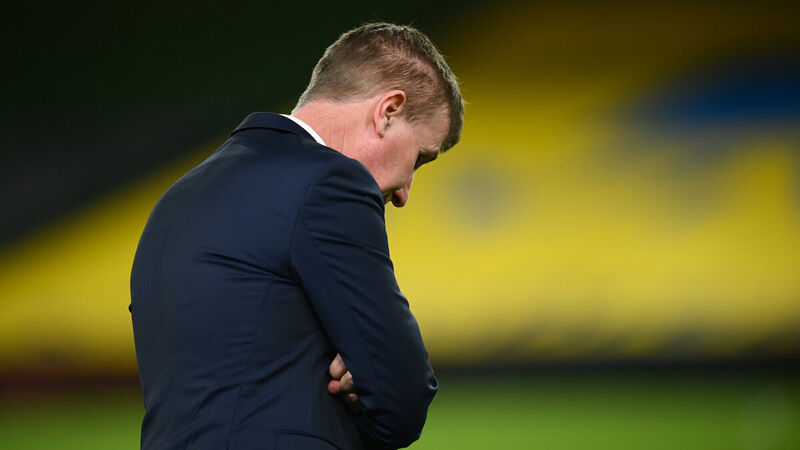Larry Ryan: Stephen Kenny battling to keep hold of the narrative as much as the ball

Republic of Ireland manager Stephen Kenny during the UEFA Nations League B match against Bulgaria at the Aviva Stadium. Picture: Stephen McCarthy/Sportsfile
As we waited yesterday for the FAI to apply its renowned investigative zeal to the case of the motivational video, it was worth noting that Ireland arguably played their best football under Stephen Kenny in the first 15 minutes of that Wembley friendly, seemingly under the influence of ‘political matters’.
On one level, it would appear to have been a lot of unnecessary work — if the Ireland boss really wanted to paint England in a bad light politically, he could surely have bypassed the talents of his in-house movie makers and just turned on the news.









